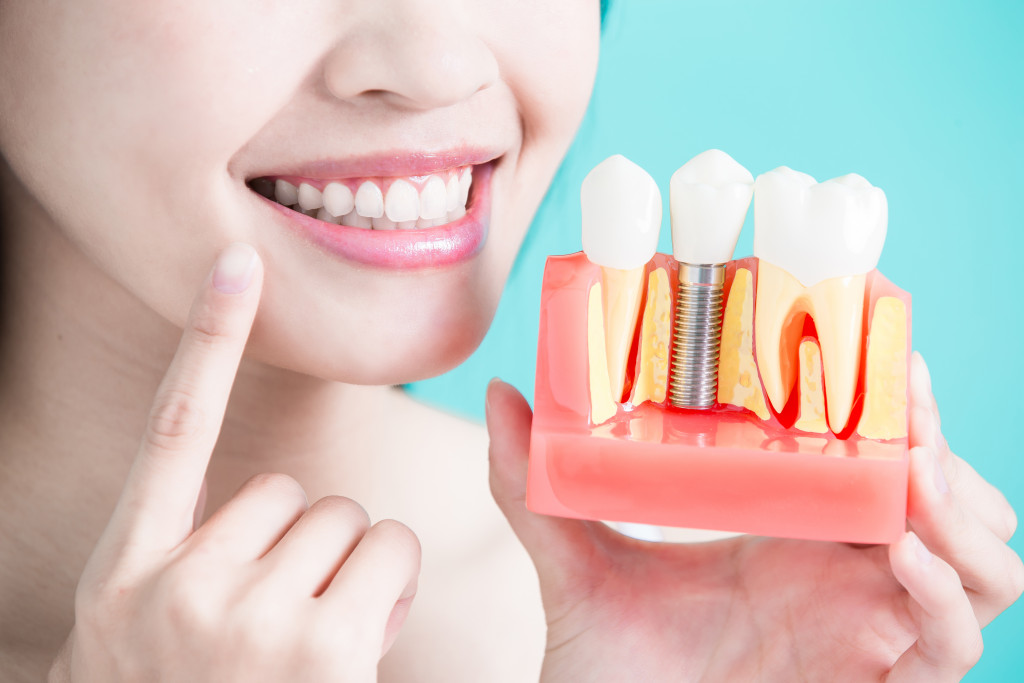Tooth loss is a cause for concern for many people. According to the CDC, about 1 in 5 adults aged 65 and over have complete tooth loss, and another 1 in 7 adults aged 35-44 have lost all of their teeth. This means that tooth loss is a problem that affects people of all ages.
Tooth loss can lead to several health problems, so it’s essential to be aware of the causes, risks, and treatment options.
Causes of Tooth Loss
There are a variety of reasons why people may lose their teeth. Here are the most common causes:
Gum Disease
Gum disease is a condition that is commonly caused by plaque. This is a sticky film of bacteria that forms on teeth. Once it gets hard, it will turn into tartar, which can irritate the gums and lead to gingivitis (inflammation of the gums).
Dental Trauma
Dental trauma is any injury to the teeth or supporting structures such as the gums, jaws, or nerve endings. Dental trauma can be caused by accidents or sports injuries, for example.
Tooth Decay
When plaque builds up on teeth, it breaks down the enamel and causes cavities. If left untreated, cavities can enlarge and eventually lead to tooth loss. Tooth decay is most common among children and adolescents but can also affect adults.
Health Risks Associated with Tooth Loss
When most people think about tooth loss, they think about an aesthetic problem. And while it’s true that tooth loss can make you look older and can be a significant source of insecurity, it’s also important to remember that tooth loss is a severe health issue. In fact, there are several health risks associated with losing teeth that you might not be aware of. Here are just a few of the things that can happen if you don’t take action to address your tooth loss.
Bone Loss
A common consequence of tooth loss is bone loss in the jaw. This is because the roots of your teeth stimulate the bone in your jaw every time you bite or chew; when those roots are gone, that stimulation stops. Without that stimulation, the bone begins to deteriorate, which can lead to a change in the shape of your face and further complications down the road.
Arthritis
Arthritis is another unexpected health risk associated with tooth loss. This is because when you lose teeth, you strain the joints in your jaw, which can lead to inflammation and pain. In extreme cases, this can even lead to TMJ problems, making it hard to open and close your mouth.
Heart Disease
Believe it or not, there’s also a connection between heart health and oral health. Studies have shown that people with gum disease are more likely to develop heart disease than those without gum disease. So, if you’re ignoring your tooth loss because you think it’s just an aesthetic problem, think again!
Treatment Options for Tooth Loss
Losing teeth can be a traumatic experience, both emotionally and physically. It’s important to know that you have options for replacing lost teeth. The top three treatment options for tooth loss are recommended by dental professionals.
Dental Implants

Dental implants are one of the best tooth replacement solutions nowadays. An implant is a small titanium post placed in the jawbone where the tooth is missing. The bone bonds with the titanium, creating a solid foundation for artificial teeth. In most cases, dental implants feel and function just like natural teeth. They are an excellent option for people who have good oral hygiene and want to maintain their natural smile.
Dentures
Dentures are another popular option for tooth replacement. Dentures are false teeth that are typically made of acrylic or porcelain. They are mounted on a pink gum-colored base and held by natural suction or adhesives. Dentures can be taken out and cleaned daily. They are generally less expensive than implants but require more care and maintenance than implants.
Bridge
Dental bridges are another standard treatment for tooth loss. Bridges consist of one or more false teeth (called pontics) attached to crowns on each side of the gap created by the missing tooth/teeth. The pontics can be made from porcelain, gold, alloys, or a combination of these materials. Bridges are usually supported by natural teeth, dental implants, or a combination of both. Like dentures, dental bridges can be taken out and cleaned on a daily basis; however, they require special care to avoid damaging the Bridge.
The bottom line
Tooth loss is a serious issue that can lead to a number of health problems. If you have lost teeth, it’s important to be aware of the causes, risks, and treatment options available to you. Talk to your dentist about which treatment option is right for you so that you can take steps to protect your oral health.

